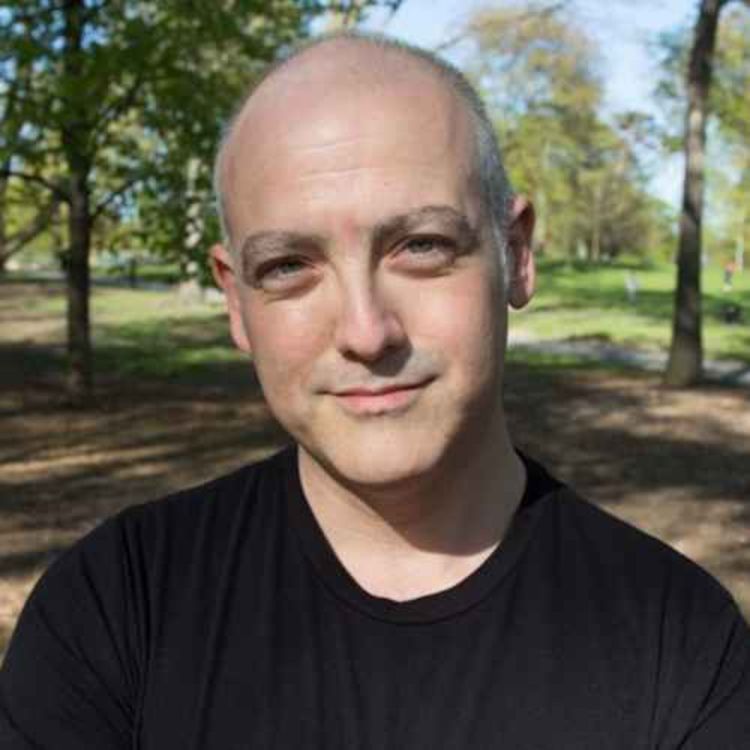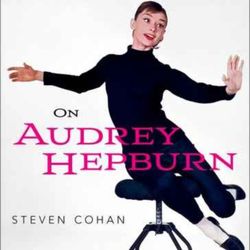Share

Writers on Film
Matt Zoller Seitz talks Books and Film
Matt Zoller Seitz is the Editor at Large of RogerEbert.com. He is also the TV critic for New York Magazine and Vulture.com, and a finalist for the Pulitzer Prize in criticism. His writing on film and television has appeared in The New York Times, Salon.com, The New Republic and Sight and Sound. Seitz is the founder and original editor of the influential film blog The House Next Door, now a part of Slant Magazine, and the co-founder and original editor of Press Play, an IndieWire blog of film and TV criticism and video essays.
A Brooklyn-based writer and filmmaker, Seitz has written, narrated, edited or produced over a hundred hours’ worth of video essays about cinema history and style for The Museum of the Moving Image, Salon.com and Vulture, among other outlets. His five-part 2009 video essay Wes Anderson: The Substance of Style was spun off into the hardcover book The Wes Anderson Collection. This book and its follow-up, The Wes Anderson Collection: Grand Budapest Hotel were New York Times bestsellers.
Other Seitz books include Mad Men Carousel: The Complete Critical Companion, The Oliver Stone Experience, and TV (The Book). He is currently working on a novel, a children's film, and a book about the history of horror, co-authored with RogerEbert.com contributor Simon Abrams.
Visit his online book store HERE.
More episodes
View all episodes

186. Steven Cohan on Audrey Hepburn
01:00:55||Season 1, Ep. 186Steven Cohan talks about his new book: On Audrey Hepburn: an Opinionated GuideProvides an original take on fashion in her films and shows how it was key to her popularityFocuses on Hepburn's abilities and craft as an actress; Offers a substantive and critical analysis of her “Cinderella” films as a discernible cycle; Argues that her striking success and popularity as a movie star was not only due to her unique physical features but to specific factors of postwar culture in the 1950s.
185. Jie Li talks Cinematic Guerillas
54:40||Season 1, Ep. 185I talk to Professor Jie Li, the winner of the Kraszna-Krausz Prize Moving Image Book Award.Please note she will be delivering a lecture in London later in November, details below.Friday 29th November, 6pmVenue: BLOC, ArtsOne, Queen Mary University of London, Mile End Road London E1 4NSFree to attend, booking essentialClick here to bookThe Foundation is delighted to be collaborating with Queen Mary University, London to present an evening celebrating the winner of this year’s Moving Image Book Award Professor Jie Li, for her book ‘Cinematic Guerrillas Propaganda, Projectionists, and Audiences in Socialist China‘ (Columbia University Press).Featuring: Jie Li, Professor of East Asian Languages and Civilizations, Harvard University and Dr. Kiki Tianqi Yu, Senior Lecturer in Film Studies at Queen Mary University of London.
184. Adam Woodward on The Worlds of Wes Anderson
49:21||Season 1, Ep. 184In all his films, Wes Anderson turns the mundane into magic by building distinctive and eccentric worlds. But how well do you know the man behind the camera? Discover the inspirations of one of our most revered auteurs with The Worlds of Wes Anderson.Anderson’s playful and vibrant aesthetic is universally admired – but how has he managed to create such a recognisable identity?From Hitchcock and Spielberg to Truffaut and Varda, there are countless homages and references scattered throughout Anderson’s filmography, while his cultural anchor points go far beyond film and into the worlds of art and literature.Evocations of place and time underpin his work, from mid-century Paris in The French Dispatch to grand pre-war Europe in The Grand Budapest Hotel, while cultural institutions – such as Jacques Cousteau and The New Yorker magazine – are other touchstones.For Wes Anderson fans and cinephiles alike, this is an essential insight into the creative process of one of the world’s most unique filmmakers.
183. Benjamin Halligan talks Hotbeds of Licentiousness
01:17:03||Season 1, Ep. 183Dr. Benjamin Halligan joins John Bleasdale to talk about Hotbeds of Licentiousness, the first substantial critical engagement with British pornography on film across the 1970s, including the “Summer of Love,” the rise and fall of the Permissive Society, the arrival of Margaret Thatcher, and beyond. By focusing on a series of colorful filmmakers whose work, while omnipresent during the 1970s, now remains critically ignored, author Benjamin Halligan discusses pornography in terms of lifestyle aspirations and opportunities which point to radical changes in British society. In this way, pornography is approached as a crucial optic with which to consider recent cultural and social history.
182. A Complicated Passion: The Life and Work of Agnès Varda
52:38||Season 1, Ep. 182The first major biography of the French filmmaker hailed by Martin Scorsese as “one of the Gods of cinema.”Over the course of her sixty-five-year career, the longest of any female filmmaker, Agnès Varda (1928–2019) wrote and directed some of the most acclaimed films of her era, from her tour de force Cléo from 5 to 7 (1962), a classic of modernist cinema, to the beloved documentary The Gleaners and I (2000) four decades later. She helped to define the French New Wave, inspired an entire generation of filmmakers, and was recognized with major awards at the Cannes, Berlin, and Venice Film Festivals, as well as an honorary Oscar at the Academy Awards.In this lively biography, former Philadelphia Inquirer film critic Carrie Rickey explores the “complicated passions” that informed Varda’s charmed life and indelible work. Rickey traces Varda’s three remarkable careers―as still photographer, as filmmaker, and as installation artist. She explains how Varda was a pioneer in blurring the lines between documentary and fiction, using the latest digital technology and carving a path for women in the movie industry. She demonstrates how Varda was years ahead of her time in addressing sexism, abortion, labor exploitation, immigrant rights, and race relations with candor and incisiveness. She makes clear Varda’s impact on contemporary figures like Ava DuVernay, Greta Gerwig, Barry Jenkins, the Safdie brothers, and Martin Scorsese, who called her one of the Gods of cinema. And she delves into Varda’s incredibly rich social life with figures such as Harrison Ford, Jean-Luc Godard, Jim Morrison, Susan Sontag, and Andy Warhol, and her nearly forty-year marriage to the celebrated director Jacques Demy.A Complicated Passion is the vibrant biography that Varda, regarded by many as the greatest female filmmaker of all time, has long deserved.
181. Jason Solomons on Film Weekly, Woody Allen and becoming a Film Producer
01:21:37||Season 1, Ep. 181Jason Solomons has been a film critic, one of the first film podcasters, an author and is now moving into a new role as a film producer with his company Movie Love Productions. He's currently working on adapting and bringing the brilliant best-selling memoir A Waiter in Paris to cinemas; and on the folk horror comedy The King of the Witches, based on a true story that’s never been told. His book Woody Allen: Film by Film is available where all good books are sold.
180. Jez Conolly on The Thing
59:09||Season 1, Ep. 180Jez Conolly is the author of the Devil's Advocate edition of his book The Thing (available here) as well as an essay in Volume 3 of Scarred for Life (see here). Consigned to the deep freeze of critical and commercial reception upon its release in 1982, The Thing has bounced back spectacularly to become one of the most highly regarded productions from the 1980s 'Body Horror' cycle of films, experiencing a wholesale and detailed reappraisal that has secured its place in the pantheon of modern cinematic horror. Thirty years on, and with a recent prequel reigniting interest, Jez Conolly looks back to the film's antecedents and to the changing nature of its reception and the work that it has influenced. The themes discussed include the significance of The Thing's subversive antipodal environment, the role that the film has played in the corruption of the onscreen monstrous form, the qualities that make it an exemplar of the director's work and the relevance of its legendary visual effects despite the advent of CGI. Topped and tailed by a full plot breakdown and an appreciation of its notoriously downbeat ending, this exploration of the events at US Outpost 31 in the winter of 1982 captures The Thing's sub-zero terror in all its gory glory.
16. From the Archives: Adam Nayman's Masterworks
01:24:44||Season 1, Ep. 16John Bleasdale talks about Paul Verhoeven, the Coen Brothers, Paul Thomas Anderson, Quentin Tarantino, David Fincher and film bros with Adam Nayman, author of Paul Thomas Anderson Masterworks and The Coen Brothers. Adam talks about his beginnings as film critic in Toronto. He also tells John his thoughts on the current state of film criticism, including the impact on social media on the film discourse. Adam's recommended film book is Un-American Psycho: Brian De Palma and the Political Invisible by Chris Dumas.Buy Adam's latest book here.
179. Venice Film Festival Final Round Up
37:12||Season 1, Ep. 179Euronews journalists David Mouriquand and Amber Bryce are joined by Sarah Bradbury of the UpComing to talk the 81st Venice Film Festival with myself, John Bleasdale.